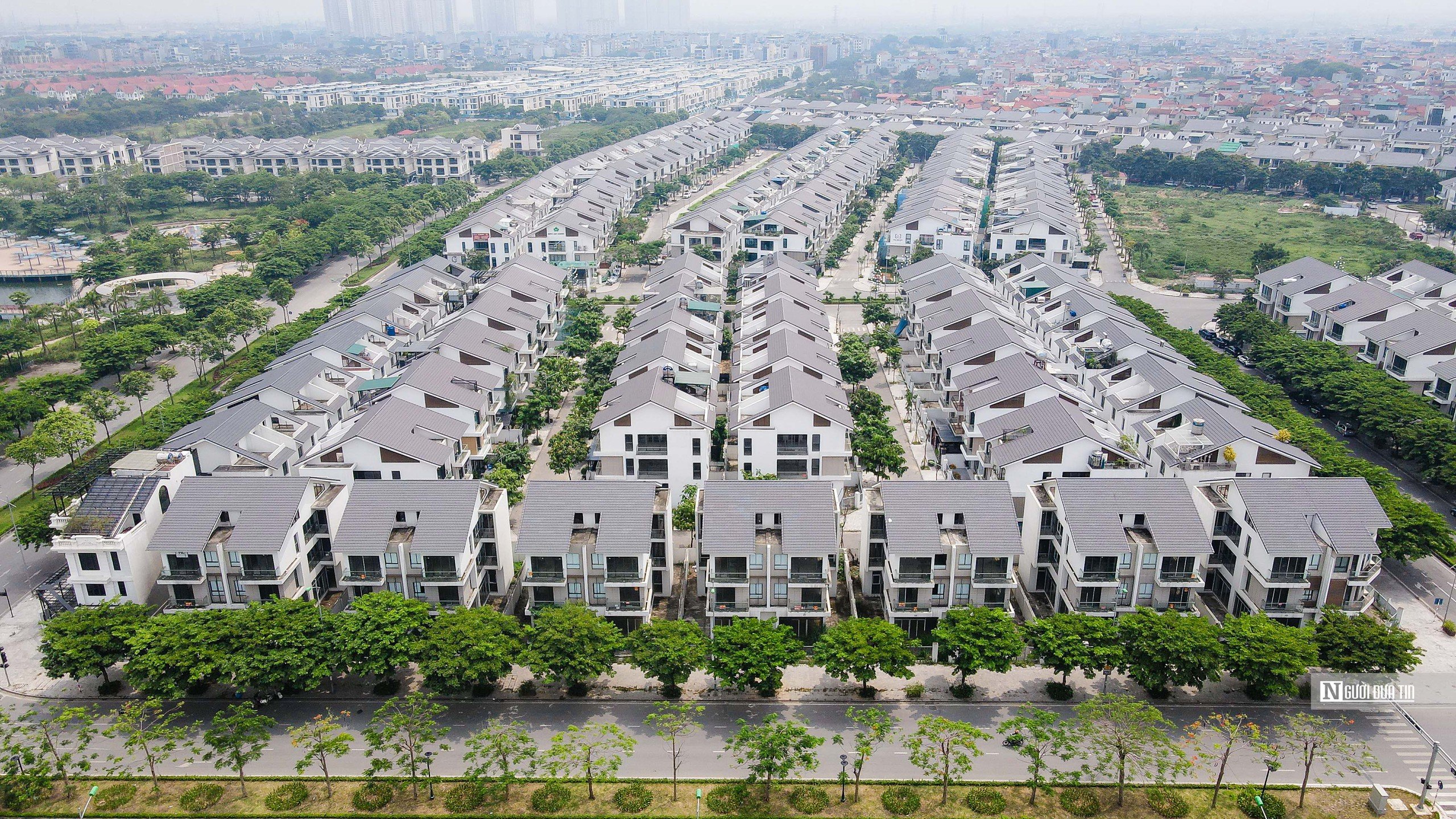As one of the 20 primary economic sectors, ranked 9th in terms of value scale, real estate is a sector that plays an extremely important role in the economy. The real estate market is not only directly related to economic development, but also affects social stability.
In fact, the real estate market in Vietnam often faces many major challenges, from bad debt, high real estate inventory, to difficulties in capital mobilization and declining investor confidence.
The Vietnam Association of Realtors (VARS) believes that these difficulties not only directly affect market development but also cause widespread consequences for the entire economy.
Control capital flows, prevent speculation
VARS research shows that, in the world , to ensure sustainable and stable development of the real estate market and avoid destabilizing impacts on the economy, many governments have used credit policy as a tool to regulate the real estate market.
By tightening or loosening credit, the government can control real estate prices, prevent bubbles, and ensure market stability.
However, the flexibility in this policy depends on each market and the specific economic situation of each country.
For example, in China, to control investment capital flows, the Chinese government imposes many restrictions on real estate purchases using credit, especially loans for speculation.
They also control capital outflows to prevent speculative money from flowing into foreign real estate markets.

By tightening or loosening credit, the government can control real estate prices, prevent bubbles, and ensure market stability.
In Singapore, in order to control speculation and prevent a real estate bubble, the Singapore Government has increased the minimum deposit ratio when borrowing to buy real estate , especially for second or third home buyers.
Many countries also apply credit control measures to foreign real estate buyers to limit speculation, curb rising housing prices and protect middle-income people in big cities like Australia, Canada, etc.
Experience from other countries shows that credit law and policy is one of the important tools for governments to regulate the real estate market.
VARS assesses that many of the policies that have been successfully applied in other countries can be referenced, learned, and applied in Vietnam.
Credit policy must be flexible, ensuring stability and limiting risks.
Based on lessons learned from previous countries, VARS proposes a number of credit policy solutions to regulate the market when the market is in trouble.
First, tighten credit policy for speculators by adjusting lending limits through adjusting loan-to-value ratios, requiring higher equity payments, or applying higher interest rates to second-home buyers.
Second is to strengthen credit supervision and management, VARS proposed that the Government could impose regulations on credit quality control.
Establish a credit mechanism for social housing projects, prioritizing funding for social housing and affordable housing development projects, to address housing needs for low-income people.

The State needs to build a database system that is large enough, accurate enough and highly up-to-date.
In addition, the State also needs to have a policy of loosening credit, including reducing interest rates and supporting long-term loans with preferential interest rates for first-time home buyers, or some other priority groups for the purpose of social stability such as newly married young couples, etc.
"In order to apply policies "correctly and accurately", the State needs to build a database system that is large enough, accurate enough and highly updated to ensure clear distinction between real home buyers, using for real production and business purposes, and speculators and profiteers," VARS's research clearly stated.
In particular, in the context of current concerns about real estate prices, VARS believes that to regulate the real estate market more comprehensively, credit policy should be combined with the application of real estate transfer tax or property tax.
At the same time, the application of regulatory policies must be flexible, ensuring stable order in the real estate market and minimizing risks.
Source: https://www.nguoiduatin.vn/kien-nghi-dung-chinh-sach-tin-dung-dieu-tieu-thi-truong-bat-dong-san-204240930112544431.htm







![[Photo] Cutting hills to make way for people to travel on route 14E that suffered landslides](https://vphoto.vietnam.vn/thumb/1200x675/vietnam/resource/IMAGE/2025/11/08/1762599969318_ndo_br_thiet-ke-chua-co-ten-2025-11-08t154639923-png.webp)




































![[Video] Hue Monuments reopen to welcome visitors](https://vphoto.vietnam.vn/thumb/402x226/vietnam/resource/IMAGE/2025/11/05/1762301089171_dung01-05-43-09still013-jpg.webp)





































































Comment (0)